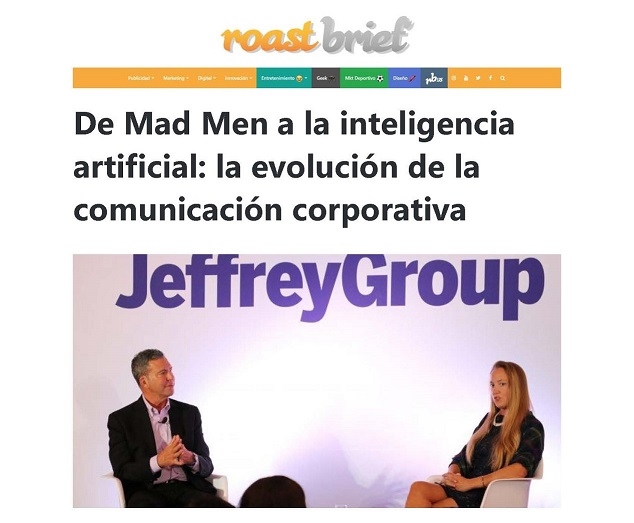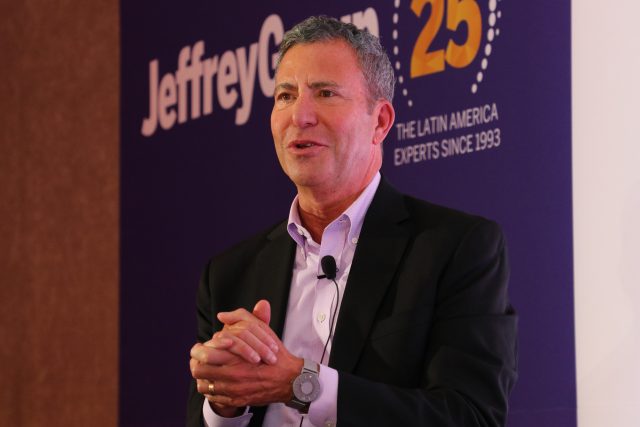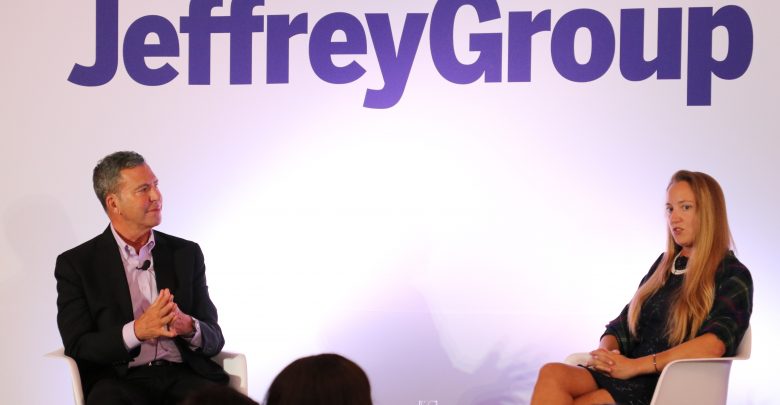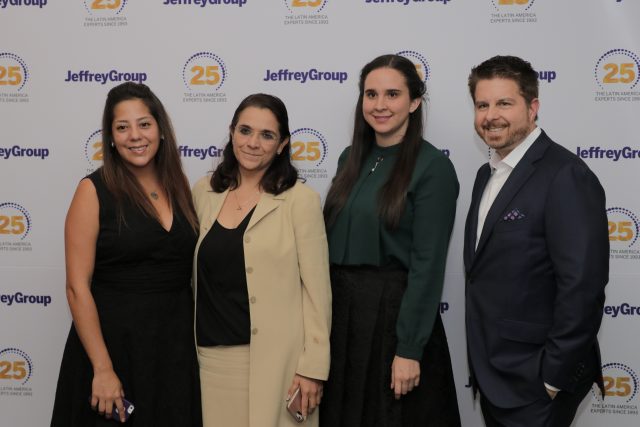From Mad Men to Artificial Intelligence: the Evolution of Corporate Communication
 In the 60s, or the era in which the successful series Mad Men took place, it was much easier for companies to manage communications, explains Jeffrey Sharlach, founder of JeffreyGroup, a communications agency celebrating its 25th anniversary this year.
In the 60s, or the era in which the successful series Mad Men took place, it was much easier for companies to manage communications, explains Jeffrey Sharlach, founder of JeffreyGroup, a communications agency celebrating its 25th anniversary this year.
“Before the internet age, the only way to communicate with millions of people was through mass media, which made it easier for companies to control the era and the message that reached consumers,” said Sharlach.
“With a limited number of roads and gatekeepers clearly identified, the process was predictable, and communication was unidirectional.” Companies have communicated with their different key audiences for hundreds of years, even long before they were identified as such. But the technological developments of the last 40 years have created opportunities – and challenges – for companies that seek to connect with their customers, employees, shareholders, and the public.
As part of its 25th anniversary program, JeffreyGroup held a seminar in which Jeffrey Sharlach discussed these changes with Allison Mann, research leader of the Mad Men television series. In addition, Mauricio Gutiérrez, managing director of JeffreyGroup México, and Jorge Valencia, president of the Mexican Association of Communicators (AMCO), spoke about the transformation of the communications environment in the Mexican market and what lies ahead.
“Basically, the golden age of advertising and communications was precisely the Mad Men period because, fairly, that was the golden age of mass media,” said Sharlach.
“When JeffreyGroup was founded in 1993, we knew that if we spread a client’s messages, and they were published in three of the country’s leading newspapers, we could be sure that they had reached 90% of the target audience.” “Today, consumers and relevant public choose their information sources from the innumerable options that are available,” said Sharlach.

“So, it’s about drawing people’s attention to your message because it tells them something they want to know. When everyone can transmit information, being heard is an even greater challenge.” “Not only was commercial communications regulated, but people had very concrete ideas about the proper way to live and anyone who did not conform to those ideals was often ostracized,” said Mann, while talking about how Mad Men episodes addressed women’s personal lives, racial minorities, and LGBTQ community.
“The era covered by the series saw many changes in the way people were treated and how they related to each other.”
The Mad Men series is famous for its historical accuracy and Mann spoke about this, detailing how she prepared a reading guide for each season to help the writers and the cast could better understand the themes of the period in which the series took place. “I would distribute a calendar that described what was happening in the real world outside the fictitious advertising agency, while the scenes of each episode took place,” she explained.
“People say that the world has changed too much, but I would question it to a certain extent,” Sharlach said. “What has really changed is the way we communicate.” “For people like me, who grew up in the 50s, life back then was not so different from todays. The houses are practically the same, families had cars, and they could fly on commercial jets, “Sharlach said.
“But communication was a different world. Without cable. Without internet. Without email. Without mobile phones. So, where the transformative change is most noticeable is in terms of communication.
Mann cited the well-known episode of Mad Men in which the first copier arrived to the advertising agency. “Before that, making multiple copies of anything was a task that required a lot of time and money,” she said.

JeffreyGroup has widely adapted to these changes for its clients. “We have always said that thinking is more important than action to boost the success of our communications programs. However, now, initial strategic planning is more critical than ever,” added Brian Burlingame, CEO of JeffreyGroup. In addition, he cited the firm’s Insights and Analysis practice as part of the new focus on the evolution of corporate communications. Now that we can address specific audiences and interest groups with unique messages, understanding this group, their concerns, and how to reach them effectively requires considerable research.
“It’s not about who you know anymore, it’s about what you know,” Burlingame said. Sharlach also explained that companies need to demonstrate that they are involved with issues that are important to their stakeholders: “Just talking is no longer enough to achieve successful corporate communications.” He referred to how JeffreyGroup specializes in developing programs that create a shared value, which benefits society while also adding to the company’s results. ”

We know from experience that sustainable programs, those that can endure for many years, are those that benefit the company and make the world a better place,” said Sharlach.
As an example, he cited the diabetes awareness program that the company recently developed for Johnson & Johnson. “Yes, they wanted to sell more diabetes control devices,” Sharlach said. “But they also provided the funds and resources so that thousands of people could control diabetes in the emerging sites of Brazil’s main cities.”
Published by RoastBrief, October 8, 2018

